 Operating a business in Hawaiʻi includes the responsibility to provide a fair, respectful, and safe workplace. If employees believe they have been mistreated, inadequately trained, or unnecessarily put in danger, they may sue the business for any resulting injuries and loss of income. After any accusation of worker mistreatment, employee loyalty and the reputation of the business can be compromised; swift and tactful action is essential to resolve the issue quickly.
Operating a business in Hawaiʻi includes the responsibility to provide a fair, respectful, and safe workplace. If employees believe they have been mistreated, inadequately trained, or unnecessarily put in danger, they may sue the business for any resulting injuries and loss of income. After any accusation of worker mistreatment, employee loyalty and the reputation of the business can be compromised; swift and tactful action is essential to resolve the issue quickly.
The right insurance coverage can protect businesses from employee lawsuits by covering common liabilities and reducing the legal risk for the business. Many types of employee insurance are required by law; however, other aspects of Hawaiʻi business insurance are not as clear-cut.
This article breaks down what businesses of all sizes should know about employee lawsuits, including the insurance they need to protect themselves.
What is EPLI and Why Does My Business Need It?
Employment Practices Liability Insurance, or EPLI, is the policy that protects businesses when employees try to sue them. These lawsuits often relate to four specific types of grievances:
- Wrongful termination
- Workplace harassment
- Discrimination
- Retaliation
Discrimination can be based on sex, gender, race, age, or disability. Retaliation can be seen when employees blow the whistle on an employer’s practices or report misconduct and subsequently feel they are mistreated in response.
A single lawsuit can generate steep legal fees, lead to lengthy court proceedings, and potentially damage the reputation of the business. Even if the employee’s claim is untrue, defending the business presents serious financial and reputational costs. EPLI policies exist to protect businesses from the brunt of these costs.
Common Employee Claims That Lead to Lawsuits
An employee can claim that they were unlawfully demoted or dismissed, or report a hostile work environment, including a potential sexual harassment situation. They may believe they were passed up for a promotion or pay raise due to their age or race, or that they weren’t accommodated for their medical or religious needs.
These are just some of the possibilities that can lead even well-meaning employers down a path of costly litigation against their own workers. The right protections can manage these challenges by acknowledging and addressing the factors that lead to litigation in the first place.
Factors Contributing to the Rise in Litigation
From 2023-2024, labor and employment class action lawsuits jumped 10%, with almost 80% of companies reporting that they were involved in an employment class action case within the last 5 years. What is contributing to this rise in tension between employees and employers? These five trends may shed some light on the current situation:
- Employees, employers, and media outlets have gained greater awareness of employee rights.
- Expectations around workplace culture have shifted to more fully support inclusion and diversity.
- Federal and state labor laws have become stricter.
- Employees have become increasingly encouraged to speak out.
- Part-time, remote, and contract workers have received more protections.
 For example, Pew Research in 2024 found that 52% of workers believed that increasing DEI was important. Though this is down from 56% in 2023, it still reflects that a majority of employees support greater awareness. For employers in Hawaiʻi, these changes must be addressed with proactive risk management strategies, which include the right insurance coverage.
For example, Pew Research in 2024 found that 52% of workers believed that increasing DEI was important. Though this is down from 56% in 2023, it still reflects that a majority of employees support greater awareness. For employers in Hawaiʻi, these changes must be addressed with proactive risk management strategies, which include the right insurance coverage.
What Insurance Policies Cover Employee Lawsuits?
These are the primary policies that help businesses cover employee-related claims:
1. Employment Practices Liability Insurance (EPLI)
These policies provide direct protection against employee lawsuits, including coverage for legal defense costs, settlements, mediation fees, and court-ordered judgments. These protections apply even when the business is at fault.
2. Directors and Officers (D&O) Insurance
D&O Insurance protects individuals in leadership roles, including executives and board members, when they become the target of an employee lawsuit. They work with EPLI policies to increase the protection of the business.
3. Workers’ Compensation Insurance
Workers’ comp covers lost wages, medical costs, legal costs, and more when an employee is injured on the job. These policies reduce the likelihood of litigation from workplace accidents.
4. General Liability Insurance
General liability insurance can cover legal risks. However, most policies do not cover employee claims, making EPLI and other policies more important.
How to Reduce the Risk of Employee Lawsuits
While insurance provides essential protection, preventing employee lawsuits from happening in the first place is still the best way to reduce legal risk. Employers can do this by:
- Maintaining clear and updated employee handbooks
- Properly training managers and staff on workplace laws, including the rules of proper conduct
- Thoroughly documenting employment decisions, such as terminations
- Partnering with HR professionals to review business practices related to compliance
These practices build a culture of fairness and communication that reduces risk and employee turnover while communicating expectations to the team.
Common Questions About Employee Lawsuit Coverage
Does workers’ compensation protect me from employee lawsuits too?
Workers’ compensation protects against injuries and illnesses while on the job, but not from harassment or discrimination claims.
How much EPLI coverage does a small business in Hawaiʻi need?
EPLI coverage needs vary widely based on the industry of the business, employee count, past claim history, and more.
What does EPLI not cover?
EPLI usually excludes wage and hour disputes, bodily injury cases, and intentional acts.
Can EPLI be bundled with other business insurance policies?
Yes, depending on the carrier, EPLI can be added to business owners’ policies or commercial insurance packages.
Partner with Local Experts to Protect Your Business from Employee Lawsuits
 Employee lawsuits can be costly reminders of growing regulations, expectations, and awareness among employees. Every business in Hawaiʻi that hires employees is presented with some degree of risk, and not all claims can be prevented. However, EPLI and related insurance policies help businesses resolve or prevent lawsuits by educating leadership, establishing proper protections, and reimbursing the costs of employee liability.
Employee lawsuits can be costly reminders of growing regulations, expectations, and awareness among employees. Every business in Hawaiʻi that hires employees is presented with some degree of risk, and not all claims can be prevented. However, EPLI and related insurance policies help businesses resolve or prevent lawsuits by educating leadership, establishing proper protections, and reimbursing the costs of employee liability.
Atlas Insurance helps businesses review their options to cover the risk of an employee lawsuit. Our goal is to help you build a defense-ready insurance strategy personalized for your business and your employees. Contact our team today to get started.
